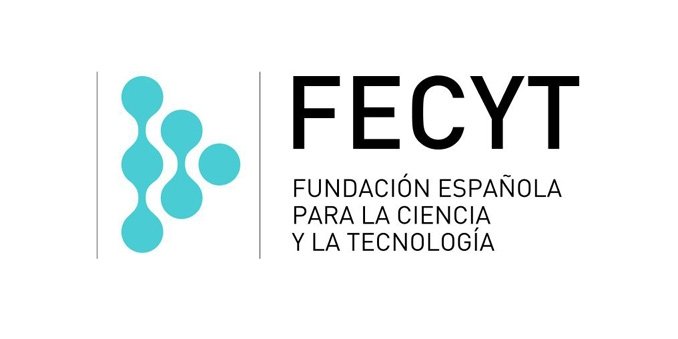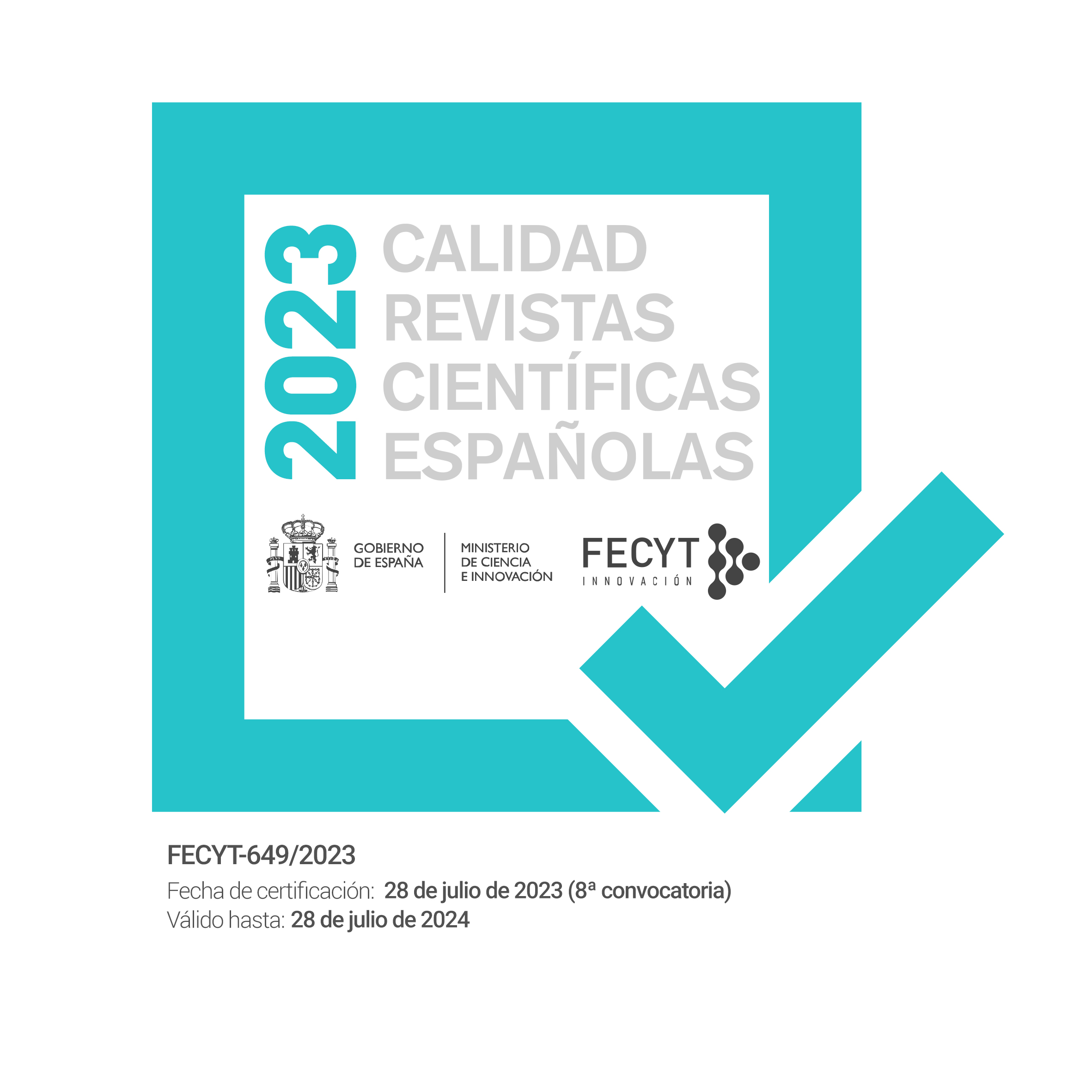Perception of personal competitiveness. A study from the perspective of happiness, well-being and education in university graduates
Abstract
Competitiveness is a subject of study that affects different aspects of the individual and of the organizations. The demand that the modern environment towards the acquisition of skills, abilities and capacities impels diverse studies on the satisfaction that is obtained when trying to fulfill all the requirements in the process of development. In this research, we try to find a relation between competitiveness and the variables of happiness, welfare and education to validate the existence or significant influence among them. For these effects a correlation analysis and quantitative structural equations were used in a case study with a sample of 106 university graduates. The main findings indicate that happiness is a perception that can be presented as independent of competitiveness. In contrast, welfare and education have a more significant relationship among respondents.
Downloads
References
Brief, V. T. (2014): “Creating”, Veterinary Team Brief, 11.
Álvarez Nobell, A. y Muñiz Velázquez, J.A. (2013): “Felicidad y desarrollo de la cultura en las organizaciones, un enfoque psicosocial”, Revista Comunicación, 12, pp. 7-31.
Castellanos-Cereceda, R. (17 de Abril de 2013): “Marco internacional del bienestar subjetivo: debates, posturas e iniciativas”, Recuperado el 29 de 02 de 2016, de INEGI: http://www.inegi.org.mx/eventos/2013/Bienestar_subjetivo/doc/P-RobertoCastellanos.pdf.
Chatenier, E., Verstegen, J., Biemans, H., Mulder, M. y Omta, O. (2010): “Identification of competencies for professionals in open innovation teams”, R&D Management, 40(3), pp. 271-280.
Climént Bonilla, J.B. (2012): “Redimensionando el significado y alcance de las competencias personales”, Actualidades Investigativas en Educación, 12(2), pp. 1-28.
Climént Bonilla, J.B. (2014): “Las competencias individuales: de las expectativas de terceros a la identidad personal”, Actualidades Investigativas en Educación, 9(2), pp. 1-20.
Coetzee, M., Bergh, Z. y Schreuder, D. (2010): “The influence of career orientations on subjective work experiences”, Journal of Human Resource Management, 8(1), pp. 1-13.
Essounga-Njan, Y. (2014): “Happiness and productivity: A cross-cultural review of the USA and France”, Proceedings for The Northeast Region Decision Sciences Institute (NEDSI), pp. 833-840.
Field, L.K. y Buitendach, J.H. (2011): “Happiness, work engagement and organisational commitment of support staff at a tertiary education institution in South Africa”, Journal of Industrial Psychology, 37(1), pp. 1-10.
Hudec, G., Susnea, I., Bihar, Ž. y Kirinić, V. (2015): “Teaching Creativity in Engineering”, Proceedings of the Multidisciplinary Academic Conference, pp. 1-5.
Johansen, V. (2014): “Entrepreneurship Education and Academic Performance”, Scandinavian Journal of Educational Research, 58(3), pp. 300-314.
La Madriz, J. y Parra, J. (2016). “Competencias personales y profesionales aplicadas por gerentes bajo escenarios de incertidumbre económica”, Negotium, 11(33), pp. 69-98.
López, J. (2010). “La selección de personal basado en competencias y su relación con la eficiencia organizacional”, Perspectivas, 26, pp. 129-152.
Lyubomirsky, S. (2008): La ciencia de la felicidad: un método probado para conseguir el bienestar, Barcelona: Ediciones Urano.
Mahdavi Mazdeh, M., Razavi, S.M., Hesamamiri, R., Zahedi, M.R. y Elahi, B. (2013): “An empirical investigation of entrepreneurship intensity in Iranian state universities”, Higher Education, 65(2), pp. 207-226.
Mantilla, M. y García, D. (2010): “Trabajo en equipos autodirigidos: competencias personales y conductas necesarias para su éxito”, Revista Venezolana de Gerencia, 15(49), pp. 51-71.
Moreno, Y. y Marrero, R. (2015): “Optimismo y autoestima como predictores de bienestar personal: Diferencias de género”, Revista Mexicana de Psicología, 32(1), pp. 27-39.
Marrero-Quevedo, R. J., Carballeira-Abella, M. y González-Villalobos, J. A. (2014): “Relación entre bienestar subjetivo, optimismo y variables sociodemográficas en estudiantes universitarios de la Universidad de San Luis Potosí en México”, Universitas Psychologica, 13(3), pp. 1083-1098.
Nunnally, J C. (1967): Psychometric theory, New York: McGraw Hill.
OCDE (12 de 01 de 2016): OECD Better Life Index. Recuperado el 29 de 02 de 2016, de OECD Better Life Index: http://www.oecdbetterlifeindex.org/es/.
Olson, D. (2012): “Educating the Developing Mind: Towards an Overarching Paradigm”, Educational Psychology Review, 24(1), pp. 9-11.
Paschoal, T., Torres, C. y Barreiros, J. (2010): “Felicidad no Trabalho: Relações com Suporte Organizacional e Suporte Social”, ANPAD, pp. 1054-1072.
Posada, R. y Aguilar, O. (2012): “La felicidad como elemento del desarrollo sostenido desde la organización”, Revista del Centro de Investigación, 10(37), pp. 83-94.
Ramírez, E. y Cárdenas, S. (2013): “Un análisis de la vinculación entre empresas mexicanas e instituciones de educación superior a partir de los resultados de la Encuesta Nacional de Vinculación”, Perfiles Educativos, 35(140), pp. 119-131.
Rey, B. (2014): “En torno a las palabras Competencia y Competencia Profesional”, Propuesta Educativa, 2(42), pp. 28-38.
Reynolds, C., Stevens, D. y West, E. (2013): “I’m in a Professional School! Why Are You Making Me Do This? A Cross-Disciplinary Study of the Use of Creative Classroom Projects on Student Learning”, College Teaching, 61 (2), pp. 51-59.
Ruiz Larraguivel, E. (2014): “Las empresas como espacios para el aprendizaje ocupacional, La experiencia educativa de los técnicos superiores universitarios”, Perfiles Educativos, 36(144), pp. 69-84.
Strand, T. (2011): “Metaphors of Creativity and Workplace Learning”, Scandinavian Journal of Educational Research, 55(4), pp. 341-355.
Straume, L. y Vittersø, J. (2015): “Well-Being at Work Some Differences Between Life Satisfaction and Personal Growth as Predictor of Subjective Health and Sick-Leave”, Journal of Happiness Studies, 16(1), pp.149-168.
Swaroop, P. (2016): “Effects of Happiness as a Brand Building Strategy”, International Journal of Management and Economics, 2(2), pp. 547-552.
Zak, P. y Winn, B. (2016): “Your Body at Work: Physiology, Neuroscience, and Leadership”, People & Strategy, 39 (2), pp. 58-61.
Downloads
Published
Issue
Section
License
- Authors maintain the copyright, but they guarantee the journal its right for publication, that is under Creative Commons Licence, permitting others share the work, whereas clearly indicating the author and the first publication of the journal.
- Authors could adopt non-exclusive licence agreements for delivering the published version, whereas clearly indicating the first publishing in Revista de Estudios Empresariales. Second Era.
- Authors are encouraged to spread their works through Internet before and during the sending process, in order to make interesting scientific discussions that could increase the cites of the published work (Open Citation Project).
Revista de Estudios Empresariales. Second Era, uses PKP Preservation Network (PN).




























